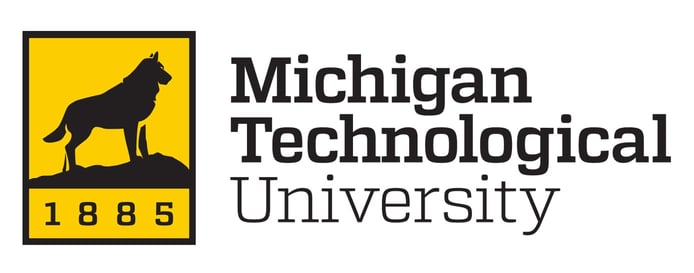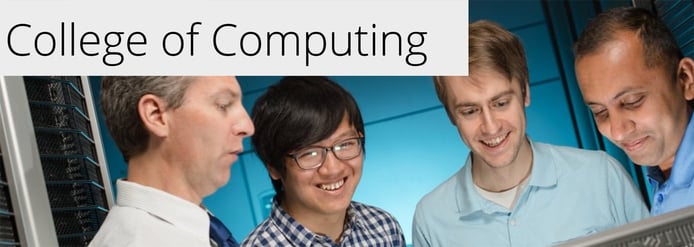
TL; DR: Michigan Technological University (MTU), nestled in the state’s beautiful Upper Peninsula just miles from Lake Superior, is preparing students to shape the future through research and innovation. The educational institution’s new College of Computing equips learners with the problem-solving skills and hands-on learning experiences that are essential for success in the diverse computing and IT industry. With well-established computer science and software engineering degree plans (BS, MS, and Ph.D.), new cybersecurity and mechatronics programs, and ample collaboration opportunities, the college is working to provide graduates with the skills they need to solve the technical challenges of the future.
Our readers know that a lot goes into finding the best providers of shared, dedicated, and virtual private servers. But what if you want to break into the industry as a professional, not just a consumer? In that case, you may want to consider a career as a network and computer systems administrator (colloquially referred to as a sysadmin).
Sysadmins are the jack of all trades of the IT world, responsible for everything from managing a network of servers and installing hardware to optimizing system performance and maintaining security. They also provide technical support, oversee data storage, prep environments for development, and configure email servers.
This is why employers often require sysadmins to have varied backgrounds in a range of programs and technologies, as well as degrees in computer science or computer systems. It’s hard work, but employees in this role certainly get paid for what they’re worth: In May 2017, the median annual salary for computer scientists was $114,520, according to the U.S. Bureau of Labor Statistics.
Computer science professionals with the right education are also in high demand. At Michigan Technological University (MTU), which ranks 14th among the top 30 computer science programs in the nation, graduates enjoy a 98% job placement rate.

MTU recently introduced an all-new College of Computing.
In addition to well-established computer science and software engineering degrees (BS, MS, and Ph.D.) the school’s newly revamped College of Computing also offers degree programs in cybersecurity, electrical engineering technology, mechatronics, software engineering, and computer engineering. Students graduate from these programs armed with essential problem-solving skills and hands-on learning experiences.
The school’s enterprise programs, for example, allow students to gain real-life experience in engineering design, team building, project management, and end-to-end original product development under the direction of a faculty advisor.
“The enterprise programs at Michigan Tech are run like businesses — we have a team that obtains funding to complete a given objective, and students manage these real problems with real clients,” said Adrienne Minerick, Dean of the College of Computing. “Making those connections and teaching the problem-solving skills to be able to manage projects effectively is extremely important.”
The College of Computing: Preparing Students for a Digital Future
Adrienne, a chemical engineer by trade, told us she’s leading the school’s College of Computing temporarily as part of a relatively recent restructuring.
“Engineering is a tool that we utilize across a whole variety of different disciplines, but the way we were previously structured didn’t make for an equivalent computing presence on campus,” she said. “There were a variety of things that were tried, including establishing the Institute of Computing and Cybersystems (ICC), which, as a research entity, has grown substantially. But from the academic side, the huge growth that we’ve seen in the computer science industry wasn’t reflected in our structure.”
A task force examining the issue recommended the school form a new College of Computing to elevate computing to a level equivalent to engineering. By December 2018, the school official announced that it would dissolve and redistribute the School of Technology — which covered everything from surveying engineering to computer network and server administration — and form a new computing college in its place. The well-established Computer Science Department was moved from the College of Science and Arts.

The newly formed College of Computing equips students with hands-on learning experiences and problem-solving skills.
“We took areas related to computing and grouped them together,” Adrienne said. “We now have two departments housed within the College of Computing: the Department of Computer Science and Department of Applied Computing.”
Students looking for a career involving server deployment and management, for example, would seek admission to the Department of Applied Computing. The college also introduced an undergraduate cybersecurity degree that students can approach from the application or networking level, plus undergraduate and graduate mechatronics programs.
Adrienne said that enrollment in both cybersecurity and mechatronics has increased rapidly, with more than 80 students in the cybersecurity track alone in the first year after launching the curriculum.
Instruction from Faculty Fully Certified in Online Teaching
As part of the restructuring, the College of Computing was also charged with infusing computing as a foundational tool into the experiences of every Michigan Tech graduate. To that end, the college piloted a range of no-experience-needed courses in standard Python and other basics.
“In doing that, some relationships were established, as well as some collaboration across campus,” Adrienne said. “So when the pandemic hit, we found ourselves in some ways becoming the knowledge center on how to interface on projects virtually.”
In addition to tapping into the wisdom of software engineering and computer networking experts — for whom virtual collaboration comes naturally — Michigan Tech turned to the college for best practices gleaned from its Humane Interface Design Enterprise (HIDE). HIDE provides students an opportunity to design, develop, and evaluate interfaces to make daily work more efficient and easier to manage.
“We were asked about duplicating that environment — it was interesting, because we essentially became the epicenter of how you coordinate these hands-on projects and how you effectively communicate the parameters that are needed to finish whatever complex project you’re doing,” Adrienne said.
Michigan Tech is leading the way when it comes to COVID-19 planning and testing. The school will regularly test asymptomatic and symptomatic students and is offering students face-to-face and remote learning opportunities via MTU Flex.
“We’d been on a path where we wanted everybody to earn online teaching certification — but it was more of a 10-year plan,” she said. “We accelerated that, and by the end of Fall 2020, we will have 100% faculty fully certified in online teaching.”
Taking a Holistic Approach to Computer Education
Michigan Tech as a whole has a culture centered on providing students with the technical and problem-solving skills it takes to find success in the industry. Many people can teach themselves a programming language or how to deploy a virtual server, but there’s more to effective programming and sysadmin work than what’s in a textbook.
“Making connections and teaching the problem-solving skills to be able to do your job effectively is extremely important,” Adrienne said.
Michigan Tech, located a stone’s throw from Lake Superior in the state’s Upper Peninsula, provides ample opportunities for students to get a balanced education. From a research standpoint, collaborations between the ICC and other agencies are common.
Tim Havens, associate dean for research for the College of Computing, is particularly passionate about growing the college’s involvement in independent and collaborative research, as well as large team endeavors.
“We live further north than most Canadians, and we are right on Lake Superior, so there’s a ton of research that’s going on involving data collection and the Great Lakes,” Tim said. “That research can later be used as a test bed for ocean studies. We also focus on both under- and above-water autonomous vehicles. A lot of the AI that goes into vehicles is created in close collaboration with the ICC.”
A New Dean and Strategic Long-Term Vision
While Adrienne is working in the short term to strategically position the College of Computing for success, the school is looking for a permanent dean with a background in computing to lead the college forward.
“We’re working to position it perfectly for a new dean to come in and set up a long-term vision to increase growth, both in terms of our dedicated computing students, but also that foundational knowledge of computing in every single one of our graduates,” she said.
The new college also aims to offer more hybrid degree programs.
“At the moment, students can get a minor in a computing area or a degree in computing and a minor in another area,” Adrienne said. “We’re working on expanding that type of combination through strategic and deliberate curriculum design.”
HostingAdvice.com is a free online resource that offers valuable content and comparison services to users. To keep this resource 100% free, we receive compensation from many of the offers listed on the site. Along with key review factors, this compensation may impact how and where products appear across the site (including, for example, the order in which they appear). HostingAdvice.com does not include the entire universe of available offers. Editorial opinions expressed on the site are strictly our own and are not provided, endorsed, or approved by advertisers.
Our site is committed to publishing independent, accurate content guided by strict editorial guidelines. Before articles and reviews are published on our site, they undergo a thorough review process performed by a team of independent editors and subject-matter experts to ensure the content’s accuracy, timeliness, and impartiality. Our editorial team is separate and independent of our site’s advertisers, and the opinions they express on our site are their own. To read more about our team members and their editorial backgrounds, please visit our site’s About page.

